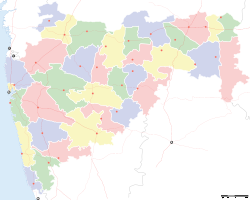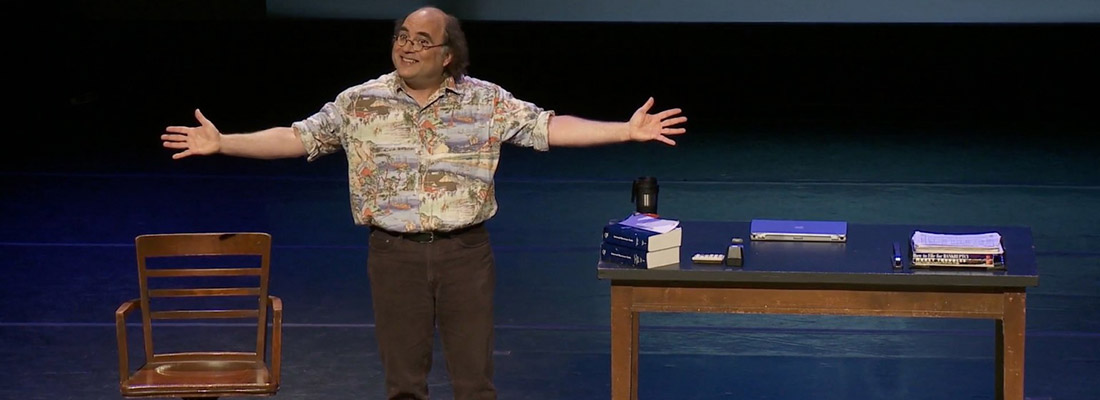 A few months ago I received an email from someone at the U.S. Consulate in India, inviting me to submit my solo show Citizen Josh for inclusion in a theater festival there. I was shocked and delighted to get this message, instantly replying that I’d love to apply.
A few months ago I received an email from someone at the U.S. Consulate in India, inviting me to submit my solo show Citizen Josh for inclusion in a theater festival there. I was shocked and delighted to get this message, instantly replying that I’d love to apply.
In the succeeding weeks, after I didn’t hear back from them, I figured that my piece was out of the running. But then, about a month ago, they wrote back to say that it was all happening. Not only that, but beyond the original performances as part of the Metro Plus Theater Festival in the city of Chennai, my American hosts would be sponsoring a tour of five other Indian cities as well: Kochi, Bangalore, Mumbai, Kolkata (formerly Calcutta), and New Delhi. The only thing was this: They wanted me to make the piece shorter (at about 80 minutes, it’s already my shortest show) and somewhat more relevant to contemporary Indian audiences.
Since then, in my usual mode of taking action only as a last resort, I’ve daydreamed fairly constantly about how I’m going to make this brilliant revision of Citizen Josh for India. And as usual, the daydreaming has, startlingly, resulted in nothing that you might call “work product.” So a few days ago I finally began to immerse myself in all things India. I bought several books — novels and nonfiction — with an average length of about 1,500 pages; this despite knowing that I normally read so slowly that getting through even one of them would take me into my dotage. I downloaded several audiobooks, to listen to while walking or working out on the elliptical trainer (ellipticality generally being a promising angle from which to approach new subjects, I’ve found); this was smarter, as I listen much faster than I read, but there remains the simple fact that I depart for India (with my production stage manager on this tour, Bob Webb) on Aug. 10 — leaving me not enough hours even to listen to all that stuff.
Finally, I decided to resort to the time-honored solution practiced by my peasant forebears: I Twittered and I Facebooked. The results were nearly instantaneous — people referred me to friends, family members, and colleagues from India, or in India, who might be willing to advise me on which sections of Citizen Josh should be revised, or deleted, for my audiences over there. That was a couple of days ago. Since then I’ve been emailing people the script, and sometimes (when they’re close) mailing them a DVD of me performing the piece. At the same time I’ve begun delving into one or two of the massive books I bought, and listening to a couple of the audiobooks.
I realize that in part this is the procrastination with which I precede all projects: It’s a shock for me to enter any new phase, much like jumping into a cold lake from a high cliff (something I have never done, actually), and this research handily keeps me away (at least temporarily) from re-addressing the Citizen Josh text — which is what a normal person would do first. But there is, I hope, also a method to my madness — and as I begin (just begin) to enter into an “I’m really going to India!” mindset, I may actually be getting glimmers of how I can wrap my Western head around this particular challenge in adaptation.
Citizen Josh is about democracy — or, more specifically, one rather passive person’s serendipitous journey into political activism. But that story, like all my pieces, is part of a larger narrative: my quest, as the child of communists, to find a way to my own set of beliefs. Where I think I sit ideologically, at 50, is in the camp of the small-“d” democrats. But where do I sit spiritually? My upbringing was, in retrospect, as spiritual as it was political: We believed in a classless, Utopian future, and there was in our rituals a kind of ecstatic faith in both the correctness of our beliefs and the inevitability of our predictions. There was no God (unless you count Marx and his pals), but there were rules that you followed, a discipline you observed, and by keeping along the righteous path you (or your children, at least) would arrive at the Promised Land: a world without exploitation, inequality, pain.
Well, it’s hard to live half a century in this world and not come to the conclusion that Utopia will never happen. It’s even harder, perhaps, not to decide that even if it could happen, you wouldn’t want it to: just to take one reason, frictionlessness is a bad environment in which to create art. But what I can’t shake, from deep in my bio-political DNA, is this: The last shall be first. People who are poor, who suffer, need to get their hands on the levers of power. Not to the exclusion of everyone else, but along with everyone else. That, to me, is a requirement of real democracy, and in the U.S. and India — two enormous “democracies” — it is quite evidently not being met.
All of which you know. But do you know how we can try to get there, on both the political and spiritual levels? If you do, please tell me! But in the meantime, I will act on my suspicion that — in learning as much as I can about how democracy is working (and not) in different cultures from my own — I may be able to find some clues to what I really believe, or want to believe, or should believe.
So I begin my re-approach to Citizen Josh, circling warily around my own story, seeking a vector that will connect me both with my dear audiences in India and with myself. And I realize, as I type these words, that what has been holding me back is, mostly, fear of failure. And I’m thinking, Oh, just that old friend! And I’m begging my old communist gods to forgive me for this latest apostasy. And I’m putting my neurotic shoulder to the wheel.
Which I’m sure is what the U.S. Consulate in India had in mind all along.

You are tremendously talented. What will come of this trip is a new Citizen Josh for American audiences, along with the Indian audiences appreciating the Josh as he stands now. Congratulations!
Hey Mr. Kornbluth,
I’m from Bangalore, India where you’ll be performing on the 19th. Just wanted to say that I am really excited to see your show and how you are going to relate to us 🙂